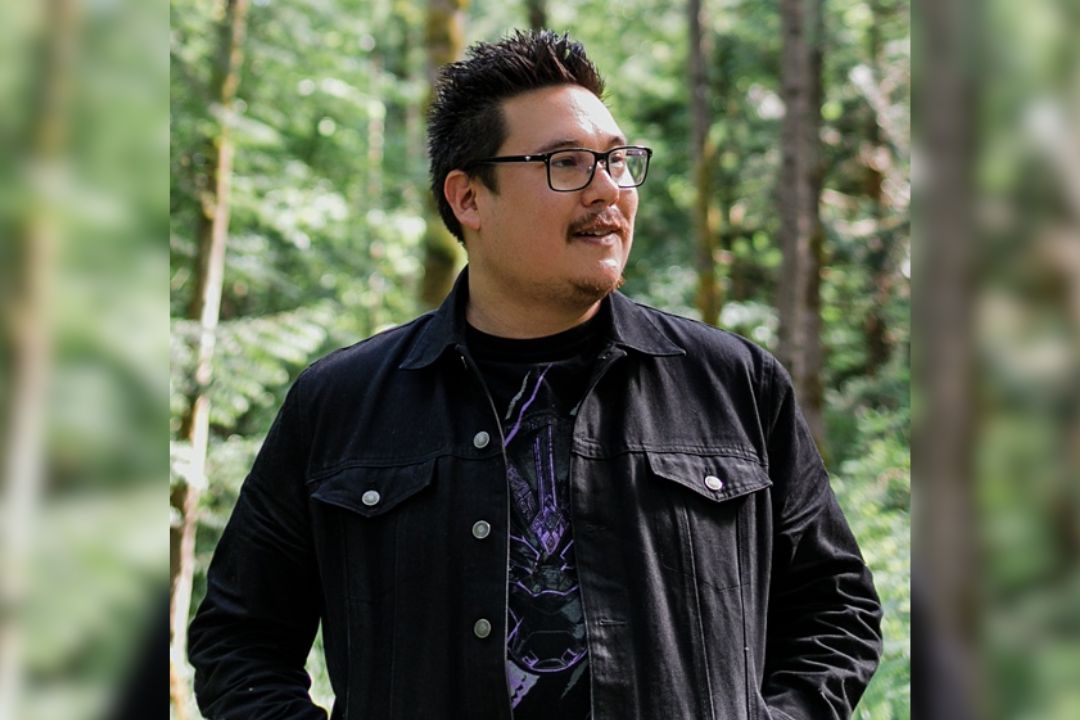The first issue of a digital literary magazine with a mandate to promote both established and emerging Indigenous writers and editors is readable online.
Jordan Abel, one of the four co-founders of Yarrow Magazine, told Taproot it was created to add to Edmonton's creative atmosphere.
"We have a lot of really talented people in this place, in literary arts, but also, in music and in drama and everything," Abel said. "There's so many cool people here."
The first issue, released in April, features new prose and poetry from writers who Abel calls "superstars of the Indigenous writing community," including Billy-Ray Belcourt, Marilyn Dumont, and Chelsea Vowel. But the next issue, scheduled to publish in the fall, will look different, he said. "There'll be names that I think very few people will recognize immediately, and that's exciting to me — to be able to lift up new voices that, maybe this is their first moment when they're showing their literary talents."
But on top of publishing Indigenous writers, Abel said the team also wants to train editors in how to approach work by Indigenous writers. "The thing that's unique about Indigenous literatures is that they're written by Indigenous peoples with Indigenous perspectives, and those perspectives and the kinds of things that are at play in Indigenous writing are sometimes totally apparent, and sometimes not."
When Indigenous writers work with Indigenous editors, it can be a revelatory experience, Abel said. "Our co-founder, Conor Kerr, put it really eloquently … when he said, 'Indigenous peoples need Indigenous narrative sovereignty,'" Abel said. "I think it's really important that Indigenous peoples have a role in editing Indigenous writing, because of the kinds of particular expertise that we're able to bring to it that non-Indigenous editors sometimes are capable of bringing and sometimes are not capable of bringing."
Non-Indigenous allies are also welcome to apply for mentorship as editors, Abel said.
Rhonda Kronyk, a founding member of the Indigenous Editors Association and an Edmonton-based editing consultant, recently spoke to West Coast Editor about how allies can approach editing Indigenous work. "I know the reasons why I have to be so vigilant in how I edit Indigenous content, how to do my work carefully, and when to push or pull back on these elements," Kronyk said. "That knowledge helps me find the delicate balance between the author's voice and readers' needs."
To be an ally to Indigenous writers, editors must be willing to research the historical context of the writing they are editing, know when to ignore English rules, and stand up for Indigenous voices, Kronyk said. She added that editors should be prepared to turn down work if the story should be edited by an Indigenous person.

Jordan Abel, one of four co-founders of Yarrow Magazine. (University of Alberta)
Abel is a University of Alberta professor and an award-winning author of the poetry collections The Place of Scraps, Un/inhabited, and Injun. He started Yarrow earlier this year with Conor Kerr, Jessica Johns, and Chelsea Novak.
Johns received critical acclaim this year for her debut novel Bad Cree. The book was championed on Canada Reads 2024, won the Georges Bugnet Award for Fiction from the Writers' Guild of Alberta, was shortlisted for the 2024 Rakuten Kobo Emerging Writer Prize, and currently is a finalist for the Aurora Awards. Kerr just released his second novel, Prairie Edge, and has won awards for his poetry. Novak is working on her first novel and has experience in the magazine world — she was the arts and film editor for Vue Weekly and co-founded Daze Magazine.
Indigenous and non-Indigenous editors who are students at the University of Alberta, as well as Indigenous editors living across Canada, are invited to apply to be mentored by the Yarrow team, according to the magazine's website. As for writing submissions, Yarrow will accept poetry, fiction, and creative non-fiction from Indigenous writers from Canada. The magazine will also accept pitches for book reviews by Indigenous writers and artists, or interviews with Indigenous writers and artists. Reviews and interviews can be written by Indigenous and non-Indigenous writers, according to the website.
The next issue will be released in partnership with the Indigenous Voices Awards. Yarrow will publish the winners of the unpublished poetry and prose awards, including work from Edmonton's Kaitlyn Purcell.
Abel said he hopes these emerging Indigenous writers form relationships through their work at Yarrow. "I want to help them create their own networks and I want to introduce them to my networks … I really do feel like there's a lot of folks that I'm happy to introduce emerging Indigenous editors to, and maybe I can help create some of those connections help facilitate whatever their next steps are in their careers."
"I do truly hope that Yarrow is a jumping off point and a stepping stone to something else."
